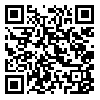BibTeX | RIS | EndNote | Medlars | ProCite | Reference Manager | RefWorks
Send citation to:
URL: http://dsme.hums.ac.ir/article-1-530-en.html


 , Zohreh Sohrabi
, Zohreh Sohrabi 

 , Seyed Kamran Soltani Arabshahi
, Seyed Kamran Soltani Arabshahi 

 , Shahnam Sedigh Maroufi
, Shahnam Sedigh Maroufi 

 , Somayeh Alizadeh
, Somayeh Alizadeh 


Introduction: Clinical skills assessment is a key pillar of medical education that has a significant impact on the quality of graduates' performance. Traditional assessment methods, such as oral and unstructured exams, cannot comprehensively assess clinical competencies owing to problems such as insufficient reliability and validity. The Group Structured Objective Examination (GOSCE), a new assessment method, can be used to assess complex skills such as teamwork and professional communication. This study investigated the acceptability and feasibility of the Group Structured Objective Examination in the field of Anesthesiology at the Iran University of Medical Sciences.
Methods: This descriptive cross-sectional study was conducted at the Department of Anesthesiology, Iran University of Medical Sciences, in 2021. The statistical population comprised students and faculty members of the Department of Anesthesiology. Participants included nine faculty members with at least three years of teaching experience and 18 final-semester students, selected through convenience sampling. Data were collected using standard questionnaires measuring satisfaction ( Cronbach's alpha = 0.85) and performance ( Cronbach's alpha = 0.72).
Results: The average acceptability of the Group Structured Objective Examination (GOSCE) from the perspective of professors was 98.66±7.21 and from that of students was 98.21±5.10, both of which were above the acceptable level (60). The overall implementability score of the test was 113.22 ± 6.30, indicating the high implementability of the Group Structured Objective Examination (GOSCE). The analyses showed no significant difference between the perspectives of professors and students in terms of the acceptability of the test(P=0.37).
Conclusion: The Group Structured Objective Examination (GOSCE) has high acceptability and feasibility and can be used as a complementary method for assessing clinical skills, especially in the field of anesthesia. Further studies are recommended to investigate the long-term effects of the (GOSCE) method.
Received: 2025/08/19 | Accepted: 2025/08/25 | Published: 2025/09/21
| Rights and permissions | |
 |
This work is licensed under a Creative Commons Attribution-NonCommercial 4.0 International License. |






